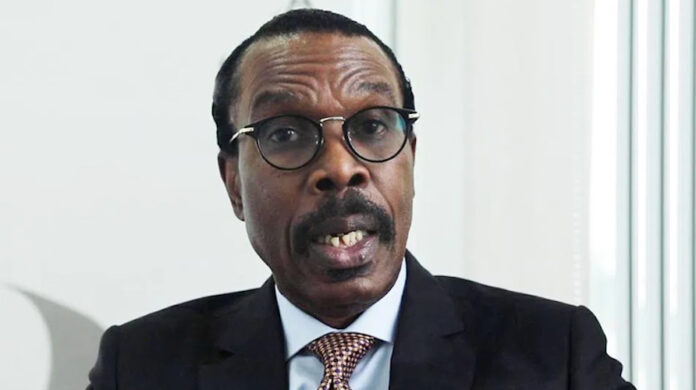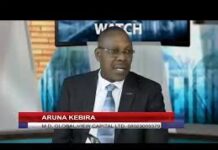•Projects N100,000 minimum Wage
•Adedipe: Grow agriculture, manufacturing, otherwise ambitious growth expectation will be a mirage
CHIGOZIE AMADI
The Chief Executive of Financial Derivatives Company Limited (FDC), Mr. Bismarck Rewane, has declared that the Nigerian economy underperformed in the first half of 2024.
Rewane stated this during his presentation titled “Half-Year Economic Review and Outlook: Policy Options for Government and Emerging Business Opportunities,” at the Lagos Chamber of Commerce and Industry’s (LCCI) Mid-Year Economic Review and Outlook, where he projected that the minimum wage negotiation would settle at N100,000 and the foreign exchange would trade between N1,550 and N1,650.
Also speaking at the forum, the Founder and Chief Consultant of B. Adedipe Associates Limited (BAA Consult), Dr. Biodun Adedipe, said the pace of growth in agriculture and manufacturing should be deliberately and intentionally quickened, otherwise the ambitious growth aspiration in the next seven years would end a mirage.
Rewane said: “The economy underperformed the expectations for H1’24. Oil production of 1.3mbpd remains below the budget benchmark of 1.7 mbpd.
“Economic growth of 2.98 per cent in the Q1’24 is less than the government’s benchmark of 3.76 per cent.
“Exchange rate depreciated massively by 34 per cent in H1 to N1,505 per Dollar and inflation remained untamed at a three decade high of 34.19 per cent.”
He, however, stated that there are silver linings that would provide flicker of hope for the H2’24.
According to him, oil prices that averaged $83 per barrel will remain above $80 in the H2, adding that improvement in FAAC would alleviate fiscal pressure.
“Fiscal stabilisation fund of N2 trillion would stimulate growth but 0.85 per cent of the GDP is, no doubt, a drop in the ocean,” he said.
Rewane also said that the implementation of food import could tapper inflationary pressure but there are risks, which “may quicken currency pressure and stymie domestic agricultural activity.”
He also said that the new minimum wage that would be announced in the coming day would increase wages and boost aggregate demand.
He, however, warned that it “carries inflation risks and test the fiscal sustainability of the state governments,” adding that “what happened in Kenya will continue to reverberate across Africa, quickening the risk of antigovernmental protests and ushering in a new wave of pro-people consciousness in government.”
Making his presentation on “Nigeria’s Economic Scorecard: Agriculture, Manufacturing and Trade – Trends and Perspectives,” Adedipe, said the economy has maintained steady growth during the period under review even though that it was still highly volatile to external shocks, especially oil market variability and investment dynamics, which he noted are strong case for diversified external sector.
He also observed that agriculture has been consistently the largest sector contributor to GDP while industry has persistently declined, paving the way for services to drive the economy and filling the widening performance gap created in the industrial sector.
“Agriculture growth dampened but has been fairly stable since 2018. Industry is highly volatile but trending downward. But services maintained strong growth, dampened only during the two recessions of 2016 and 2020,” Adedipe said.
He, further, remarked that Nigeria has applied the typical IMF recipe of eliminating premium by devaluation of the domestic currency, which is mere financial and would not solve the underlying structural problems of Nigerian economy.
According to him, “the enduring solution is expansive domestic manufacturing, agribusiness and relentless, deliberate and focused export drive.
“The pace of the drivers of agriculture and manufacturing has to be deliberately and intentionally quickened in order to bring them into this class (fastest growing sector). Otherwise, the ambitious growth aspiration in the next seven years will end a mirage.”
In his welcome address, the President of LCCI, Mr. Gabriel Idahosa, explained that the Mid-Year Economic Review and Outlook is an annual event of the LCCI that is designed to review key policy developments and macroeconomic performance in the first half of the year and discuss the outlook and expectations for the second half, focusing on risks and opportunities.
Idahosa, noted that in the first half of 2024, the Nigerian economy witnessed multiple macroeconomic headwinds and high uncertainties, which according to the National Bureau of Statistics (NBS), caused the Nigerian real GDP growth to drop to 2.98 per cent in Q1 2024, from 3.46 per cent in Q4 2023.
He said: “We need to boost non-oil, real sector production to produce more food, curb rising food inflation, and manufacture goods for exports to earn foreign exchange earnings.”





















